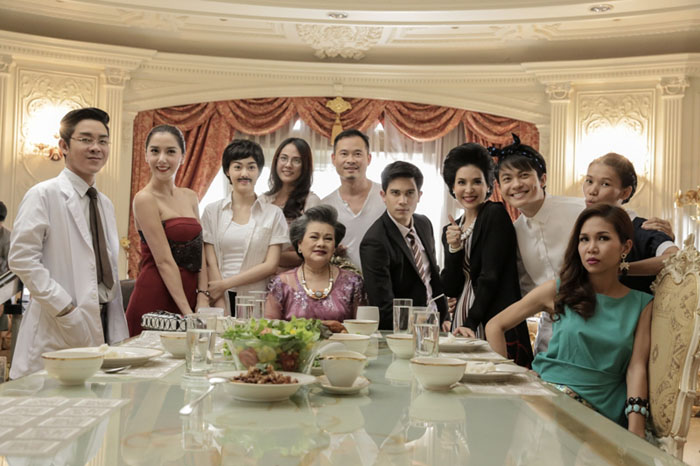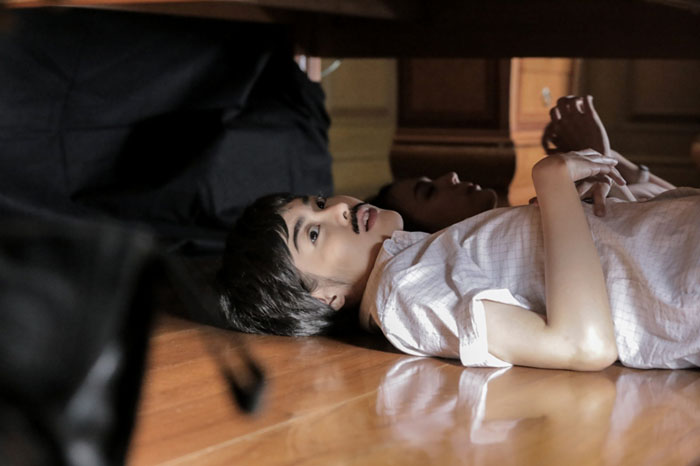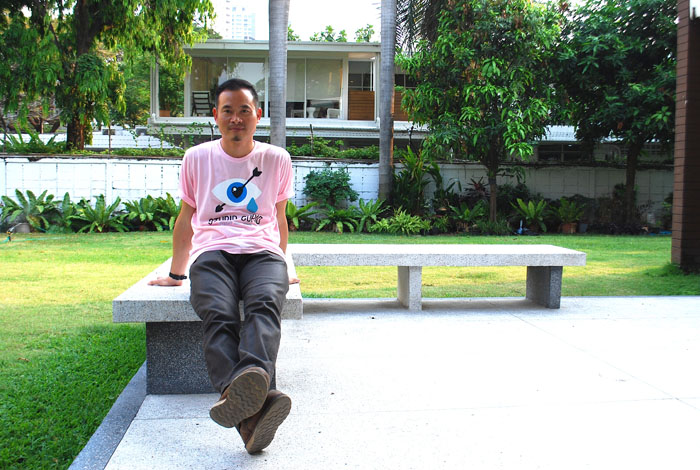Director Adisorn “Ping” Trisirikasem, 39, has dipped his toe into the world of series for the first time since his first 2009 breakout Bangkok Traffic Love Story, which grossed over THB157 million.
Adisorn’s latest comedy-drama series, Namta Kammathep (Stupid Cupid) is a typical Thai soap series with the crazy twists aimed purely to entertain viewers.
We sat down with the GTH (Grammy studio GMM Tai Hub) director to talk about the state of lakorn, directing and being an artist.
Stupid Cupid premieres tonight at 10pm on GTH On Air Channel and GMM 25.
Coconuts Bangkok: Is Thai lakorn out of touch with its depictions of sexual violence, stereotyping misogyny?
Ping Adisorn: We’ve watched Thai lakorn since we were young, as there was no age restriction at the time. But when I got to study about films at Chulalongkorn University, I started to raise the questions like “Why must the female protagonist have her face fully made up while sleeping?” “Why must the male lead be so stupid believing the female villain?,” and “Why must the innocent female lead have to be unreasonably submissive?”
These things never haven’t changed during the past 20 years, but my thoughts have. I no longer ask those questions; I think it’s something unique to Thai series. To me, it’s the identity of Thai lakorn.
Those typical Thai series inspired me and got me interested in creating “Stupid Cupid” this kind of ‘Thainess.’
CB: But why do they still exist?
PA: Hmmm … Have you watched foreign series like “Game of Thrones?” That’s pretty drastic too. There’s no matter how violent the show is, I believe a number of audience out there have been educated, and they are reasonable enough to not let all these violent depictions affect their lives. Many foreign series are also violent but they categorize their ratings strictly.
To me, the problem is not the dated or out-of-touch series, but the audiences: Not all Thais are a sophisticated audience.
I’m not supporting violence, but as a media creator, I want the rating system to strictly be applied to the audience at different age. Otherwise, Thai media will get really flat and narrow, and it will be pointless to ban all the violent shows while the internet exists.
CB: And how is your series, Stupid Cupid, different from typical Thai lakorn?
AT: The narrative is more like a foreign series; the pacing is fast, unlike Thai lakorns where they need to stretch it out to two hours (including adverts) for some business reason. After two breaks of adverts, some characters sometimes still don’t move anywhere.
But we have our own channel now, so we don’t need to worry about that as much.
CB: If foreigners watch Stupid Cupid, will they understand?
AT: It’ll make sense, but they wouldn’t get all the gags right. Those who will get the right feeling, as we want should have watched Thai series (lakorn) for about 10 years to be able to get into the cultures of Thai series.
CB: Many say directing is an insecure job (which is inevitably true), what makes you stick with it?
AT: If I had invested my money to sell clothes, I would have been taking care of all the cloth items up until now. That would be all my world. Directing gets me to know a different world and meet various people.
It doesn’t make me rich, but the experience I’ve gained can’t be bought anywhere.
CB: Did you want to be a director since a young age?
AT: No, I chose Motion Pictures and Still Photography at uni because I was lazy to study, and it seemed entertaining. I only found out that there are a lot more than entertaining later on.’
I’m a city person, I moved to Bangkok at 16 and lived here ever since. I get excited to see people and their ways of life rather than going to see European architecture.
He decided to move to Bangkok and started building connections.
I got a job making VTRs, wedding video presentations, which was not so lucrative at the time. But it got popular just after I quit. Perfect timing!
CB:What makes a movie a success to you?
AT: From my experience, the script. A good script will get talented people to work with you from photographers to actors. Many misunderstood that good ideas and famous actors will get the movie sold.
CB: What difficulties have you faced?
AT: I’m a kinda person who accepts the failures. I wasn’t a brilliant kid and always did something wrong at first and then I learned from that.
I picked the science program when I was in high school, for example, before I realized I disliked it and quit to study language. The first film I got to direct, “Lucky Loser” (2006), was a huge flop at the time.
I didn’t do a good job in making that movie. I had little experience and that movie’s scale was epic. But the sunny side is I took that failure to be able to see through some experiences while making the next movie, Bangkok Traffic Love Story (2009).
A director’s job is to select which bits and pieces to put into your own movie. Not having so much experience affected me in making wrong decisions.
CB: How did you overcome it?
AT: It’s not so hard to get through, as it’s just another story in life which I know will come and go. It’s just like failing an exam.’
CB: Do you have any other kind of movies or series you’d like to make?
PA: I’m not a pure artist. In this field, if you just do whatever you want without considering about the audience and business factors, I consider that selfish and unprofessional. As TV programs are very limited by a certain group of audience and business factors.
Not every idea should be made into a movie.





Photos courtesy GMM Tai Hub





